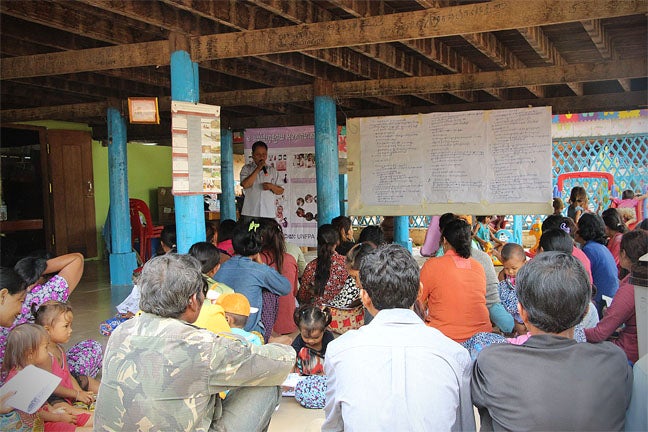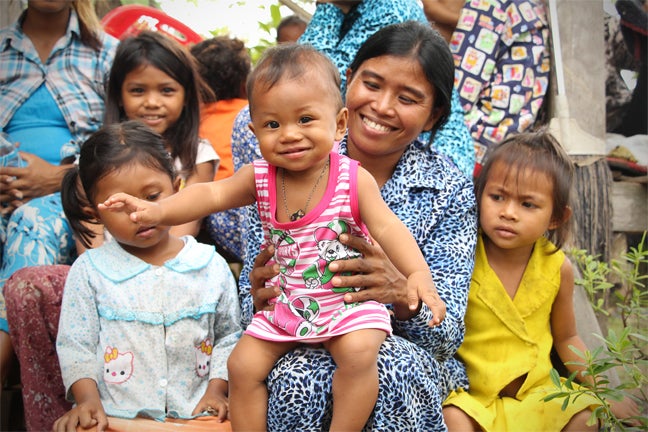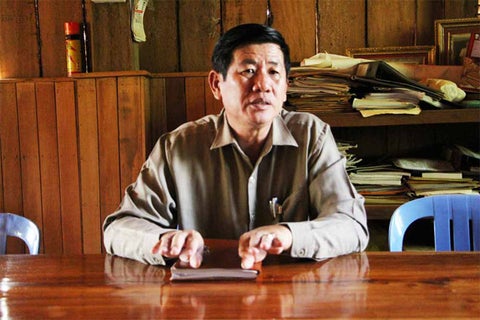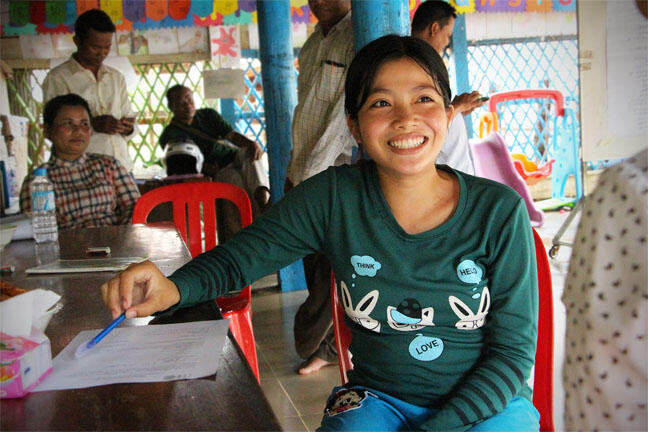Preah Vihear, 8 November 2016 - “I still remember when my neighbour experienced complications during delivery. She passed away on the way to the referral hospital; it was terrifying. Now that I’m pregnant myself, I keep thinking that I don’t want that to happen to me,” said 16-year-old Kem Lean who lives in Svay village. She is now five-month pregnant with her first child. Yet, until today Kem Lean has not sought antenatal care.
According the Cambodia Demographic and Health Survey in 2014, 1 in 5 women aged 15-19 years old in Preah Vihear are currently pregnant with their first child or have a live birth. In a remote community like Svay village, access to information about contraceptives, maternal health and childcare remains a challenge.
“It’s my first time being pregnant and I am a bit anxious. I want to be well-prepared for the delivery. A few days ago, I heard from the villagers that there was be an outreach session related to maternal health topic in my neighborhood, so I decided to join. I was eager to know more,” said Kem Lean.
Promoting access to sexual and reproductive health information
Kem Lean was one among other 50 Svay villagers who attended the UNFPA-supported outreach session on sexual and reproductive health, organized by Sangkum Thmey district municipality. This is a new initiative that UNFPA has rolled out in the most marginalized and isolated communities like Svay village. The aim is to promote district municipality’s role in promoting sexual and reproductive health services, information and rights.

Travelling from house to house, the district municipality team informs villagers about the outreach sessions and encourages them to join. They aim for 10 villages and Svay is their sixth village so far. In cooperation with the local health centre, the district municipality team invites a health professional to explain to the community about contraceptives and maternal health during each session.
“Now I know what kind of food I should eat or should not eat. The trainer also told me to visit health centre for antenatal care at least 4 times during pregnancy. I didn’t know this before,” said Kem Lean who had finished only grade 8.
When asked about her plan for delivery, with a cheery smile Kem Lean said “I look forward to my first antenatal care and when my due date is nearing, I will move into my relatives’ house in Siem Reap town because the quality and facility there are much better than that in my community. It’s safer for me and the baby.”\

Louern, a mother of two said the outreach session helped her learn more about family planning. “My husband and I used to talk about this. We think two children are enough, but we’re not sure which way is the most suitable and appropriate for us. But now I’ve become more aware of modern contraceptives, their benefits and side effects. When I go back home, I’m going to discuss with him about these possible choices,” said Louern beamingly.
Beyond health issues
Every year, district leaders receive budget package from the government to implement development plans for their community. However, only physical projects such as infrastructure and road buildings are prioritized, but not social services.
Seeing the gaps, UNFPA in cooperation with UNICEF supported the Ministry of Interior to integrate social services into the district municipality works. We have developed a training manual and trained district leaders about how to plan and implement social development projects including sexual and reproductive health, nutrition and prevention against domestic violence.

“Promoting sexual and reproductive health information is not just health imperative, it’s also critical to poverty reduction” said Mr. Ros Heng, Sangkum Thmey district leader. “When people are better informed, they will know how to delay their childbirth or stop childbearing. Being able to have children the number they desire empowers people to improve their and their next generation’s livelihood.”
Kem Lean echoed these thoughts when she was asked about her future plan. “I believe that if I space my childbirth properly, my children’s future will be much brighter than mine," she said. "I will make sure they finish school and get a good job."



